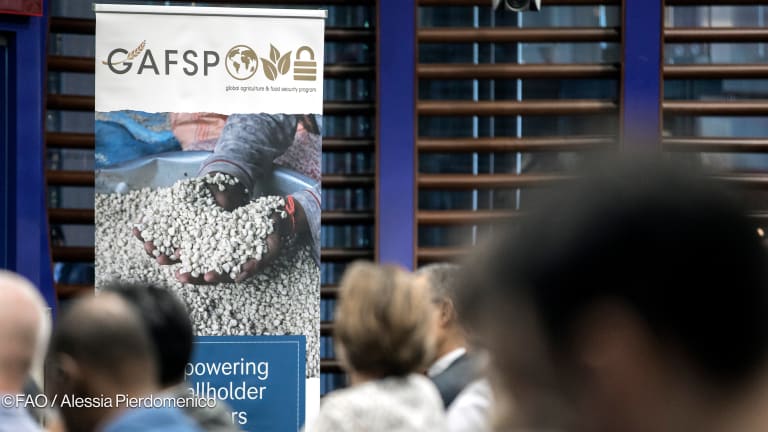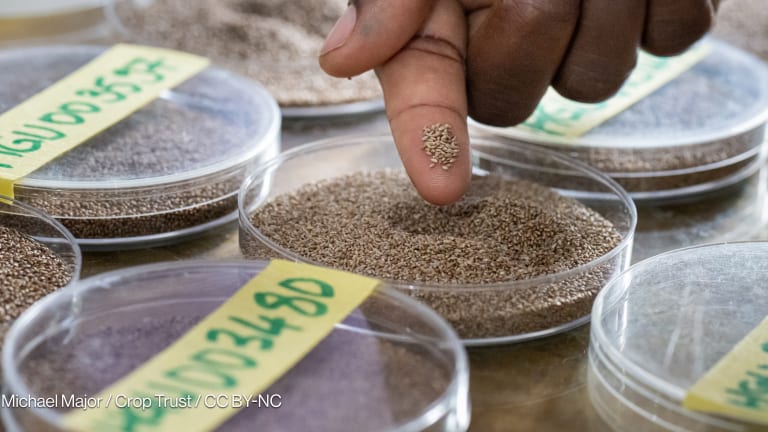The Global Agricultural and Food Security Program will make climate change a central focus of its programs going forward as it considers how to respond to a growing food crisis that threatens low-income nations, Devex has learned.
The decision to formally incorporate climate into its longstanding focus on resilience building was taken at the program’s steering committee meeting held virtually from April 26 to 27, and will tie its programs to broader climate goals, GAFSP’s Program Manager Kathryn Hollifield told Devex.
“It changes every single step and every definition of the program,” Hollifield said in an interview. “The GAFSP focus on climate, it really is making sure that existing and future projects are aligned with and are helping to build the national climate plans and these are being integrated with the wider climate principles and the different commitments in the global fora that are out there.”
This story is forDevex Promembers
Unlock this story now with a 15-day free trial of Devex Pro.
With a Devex Pro subscription you'll get access to deeper analysis and exclusive insights from our reporters and analysts.
Start my free trialRequest a group subscription







